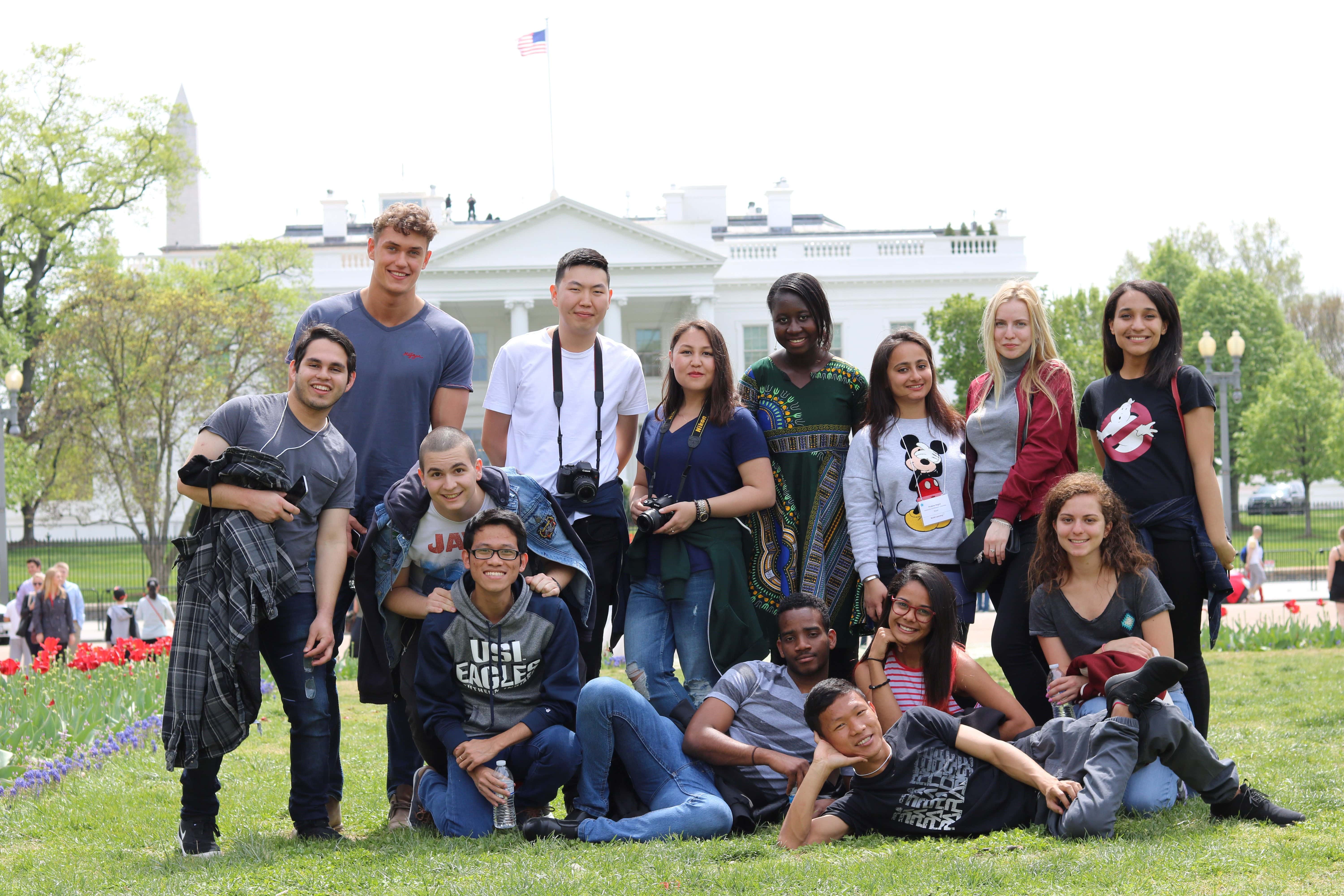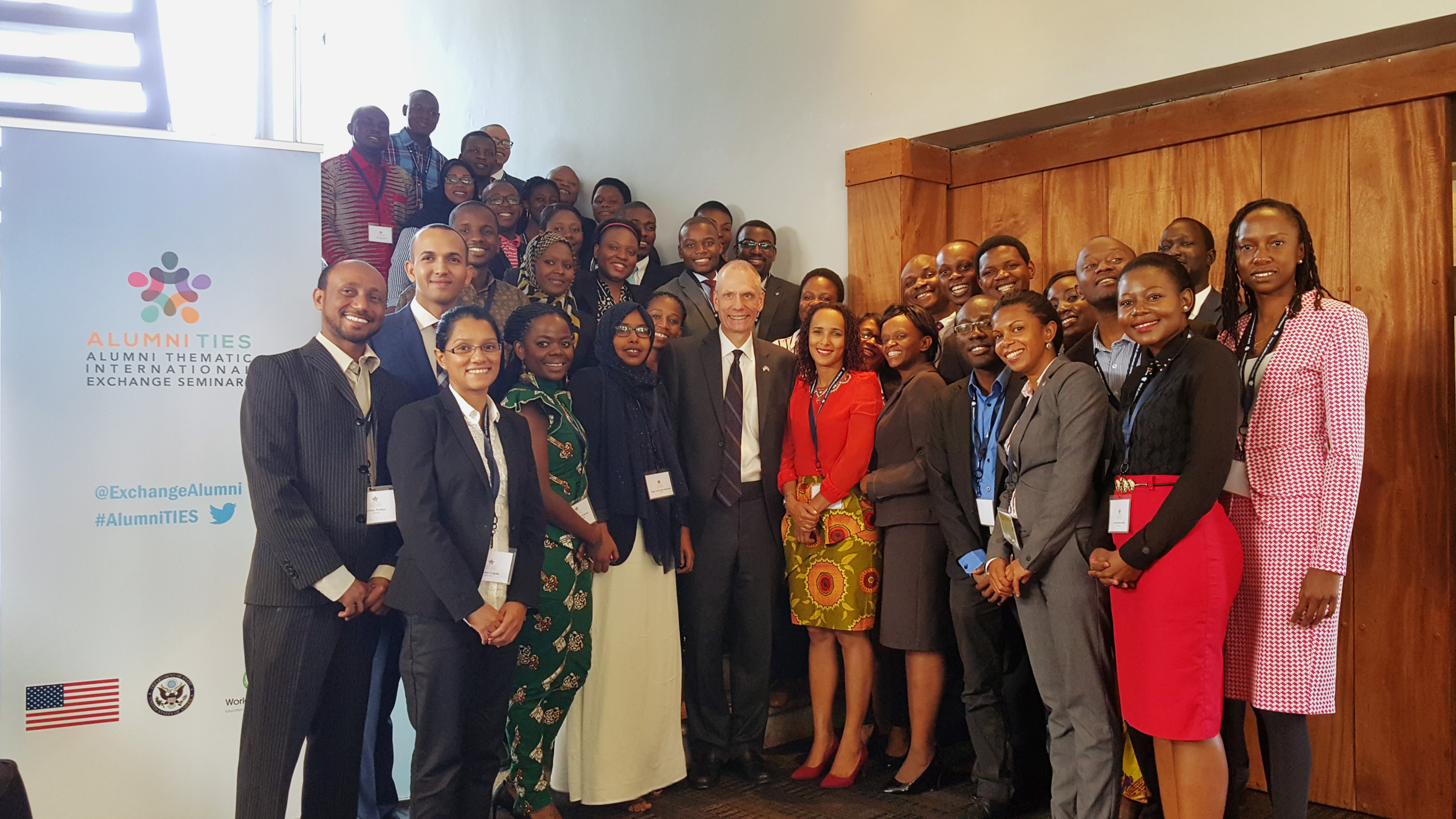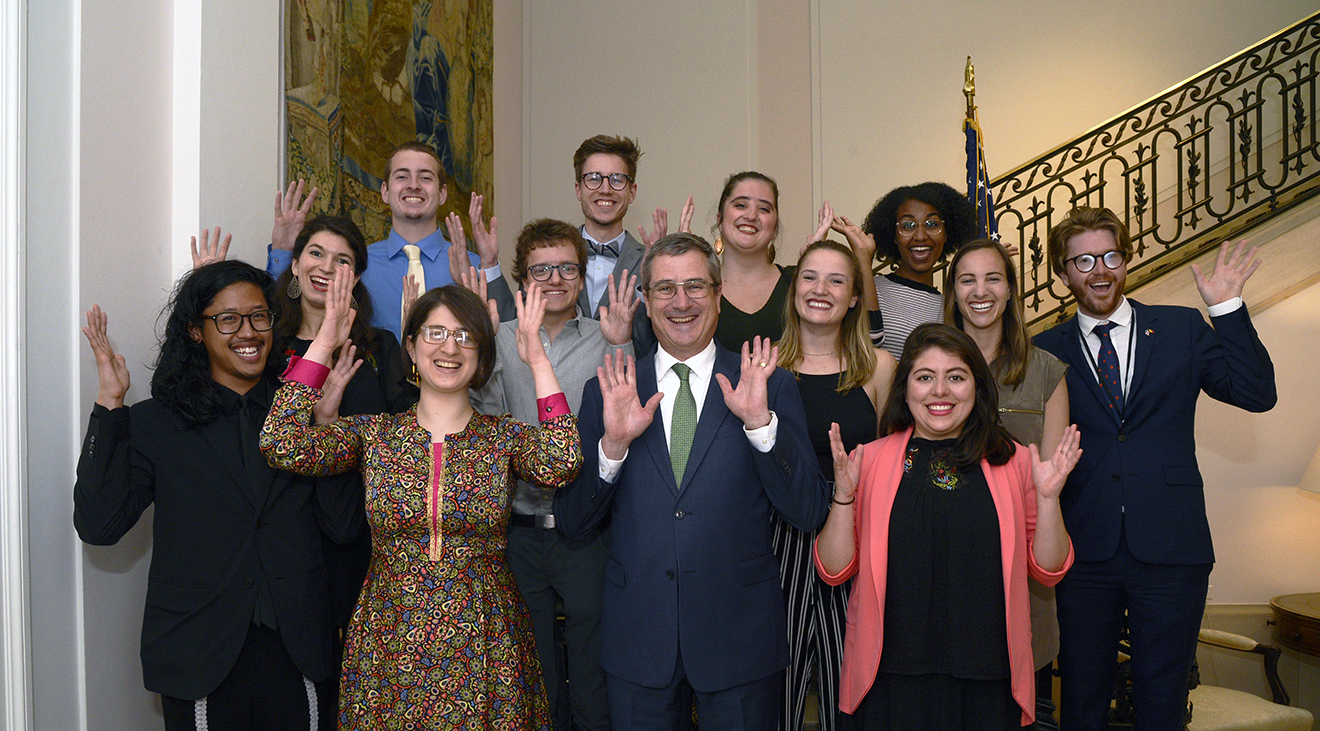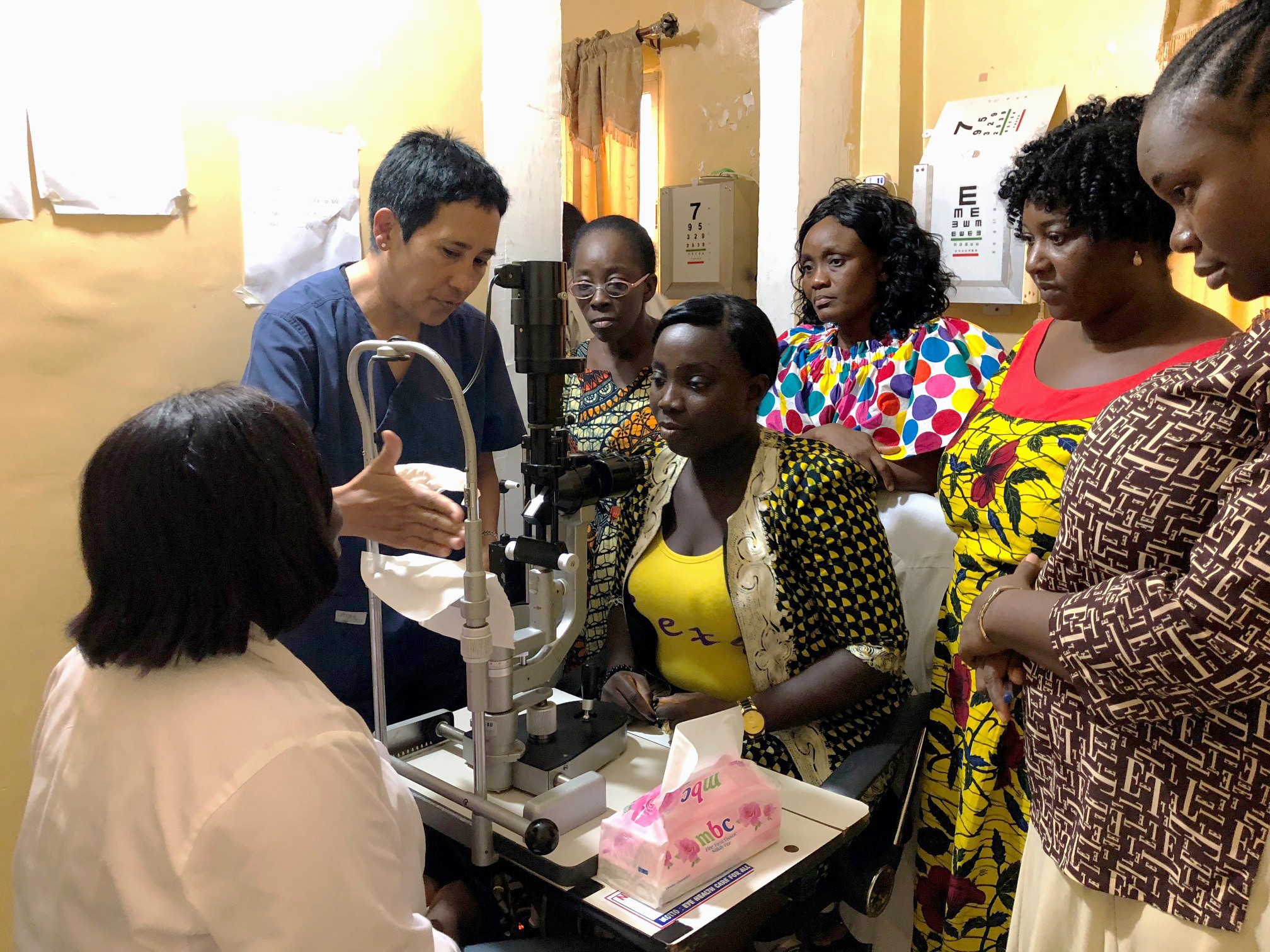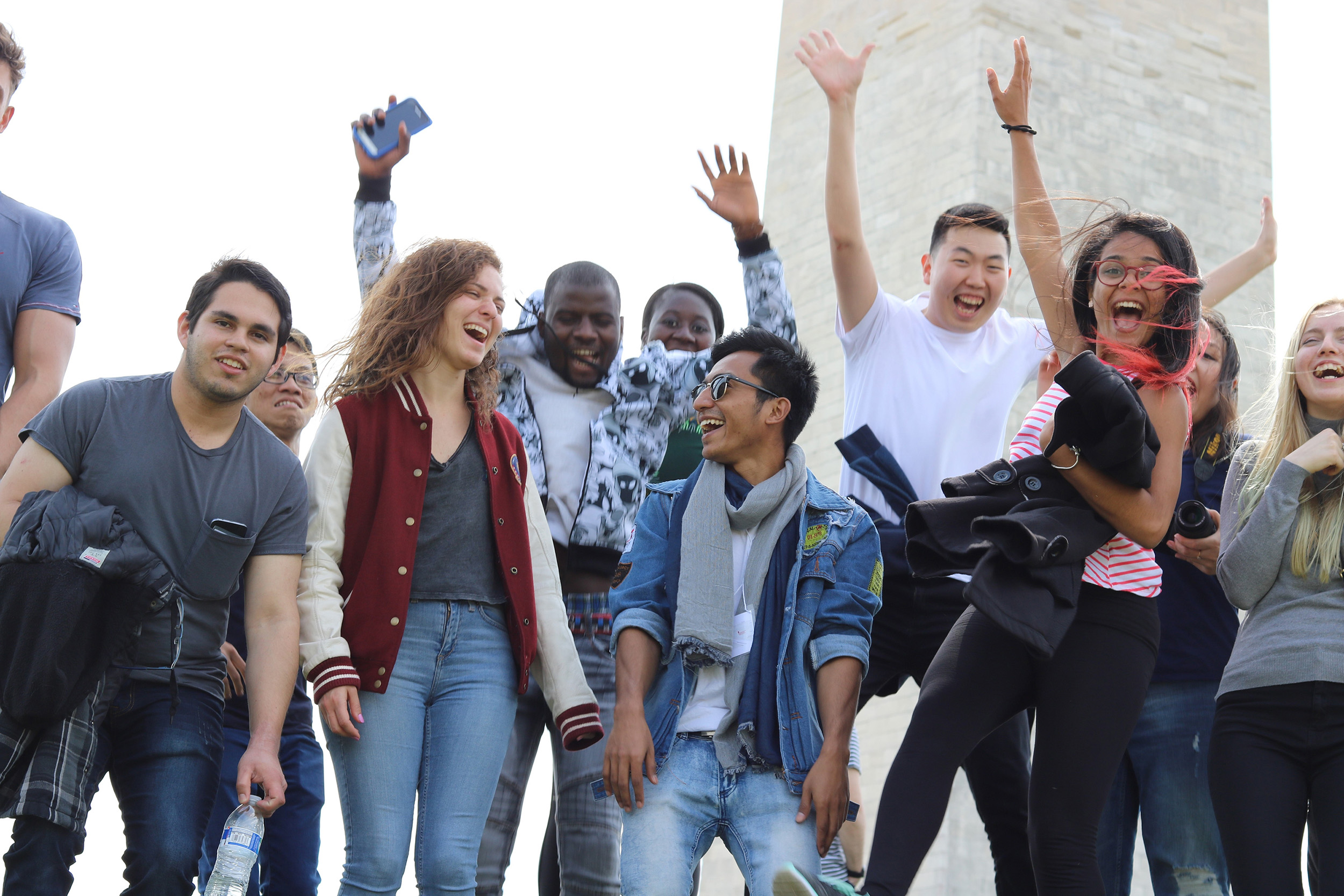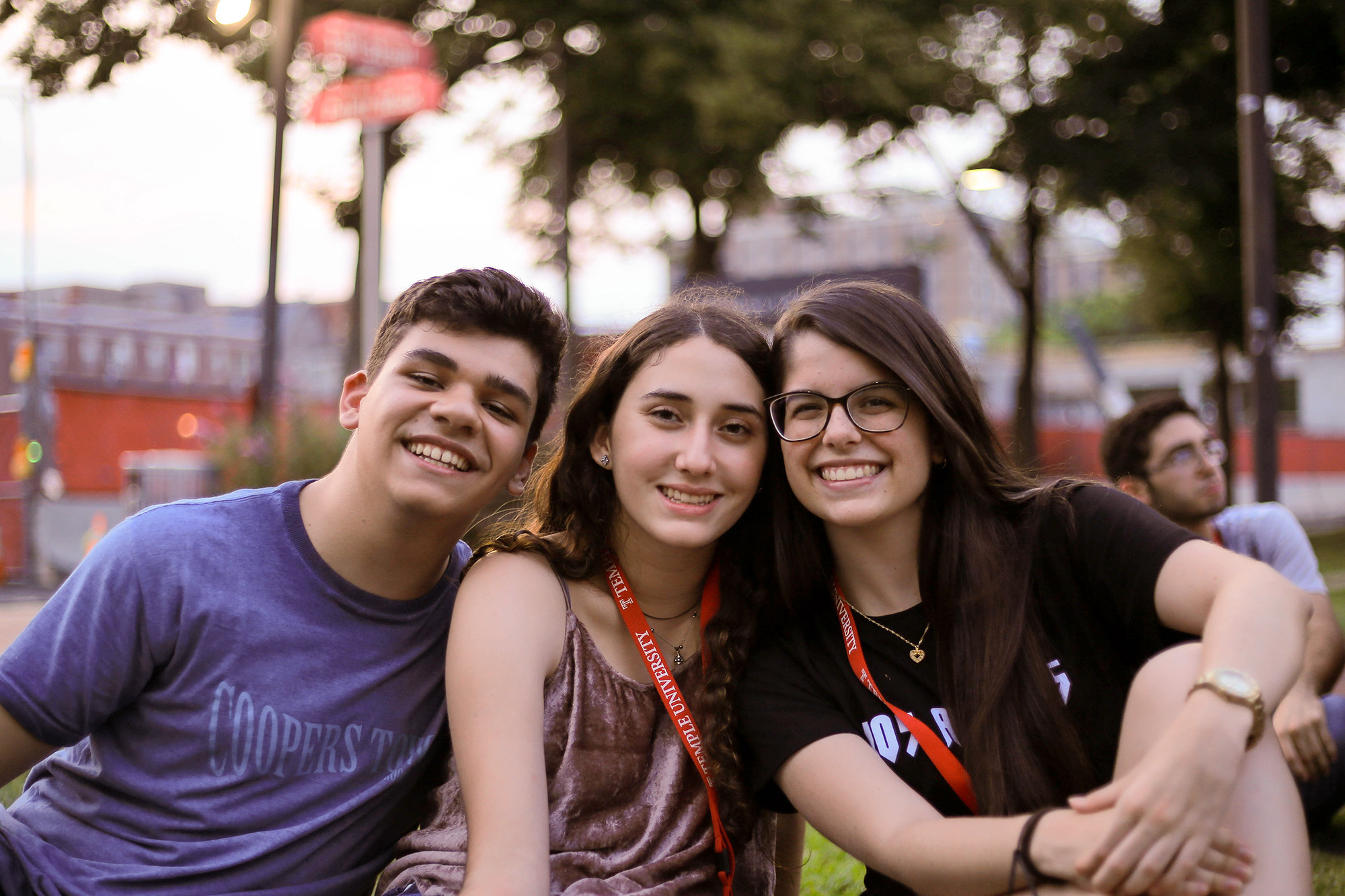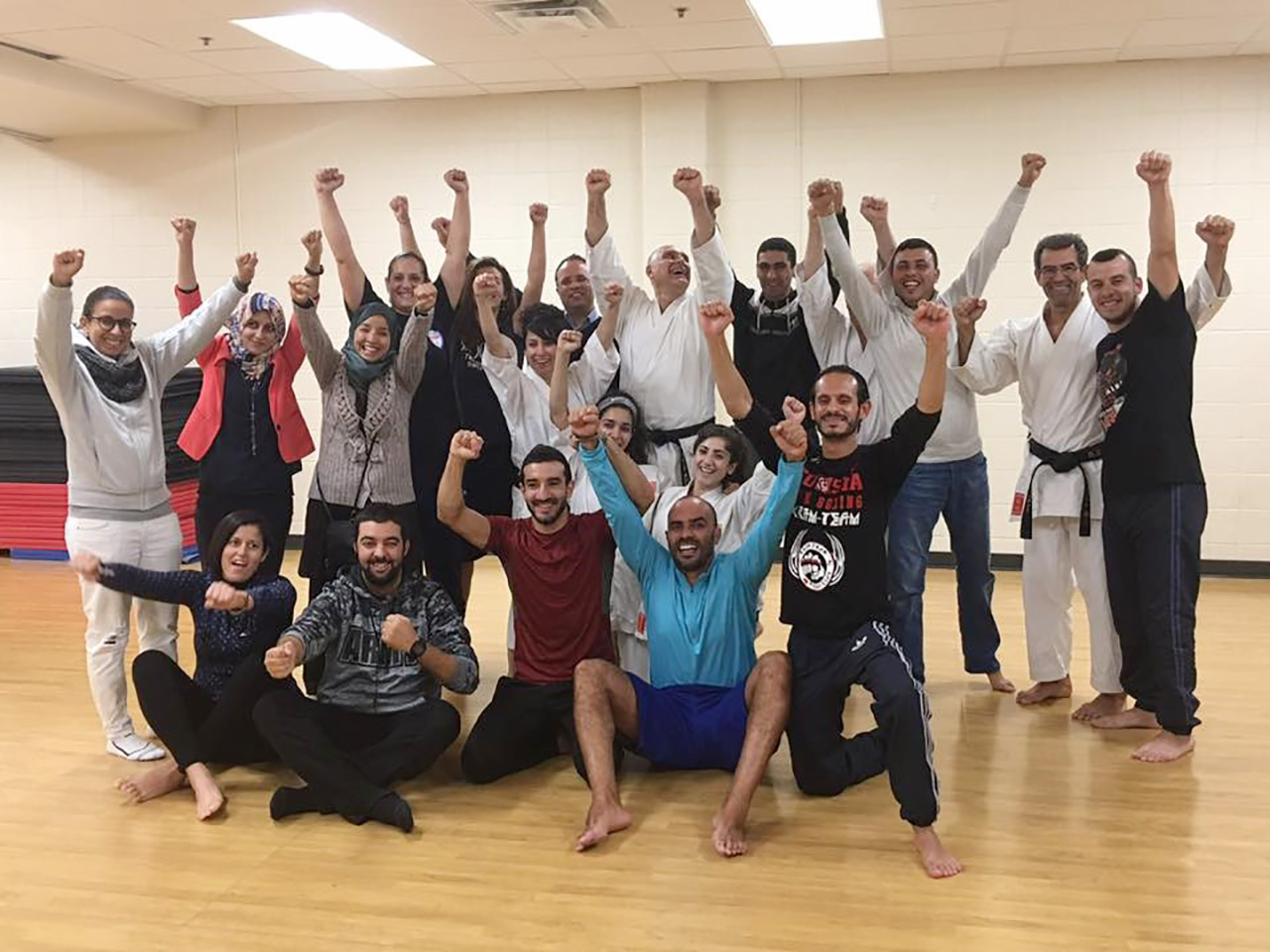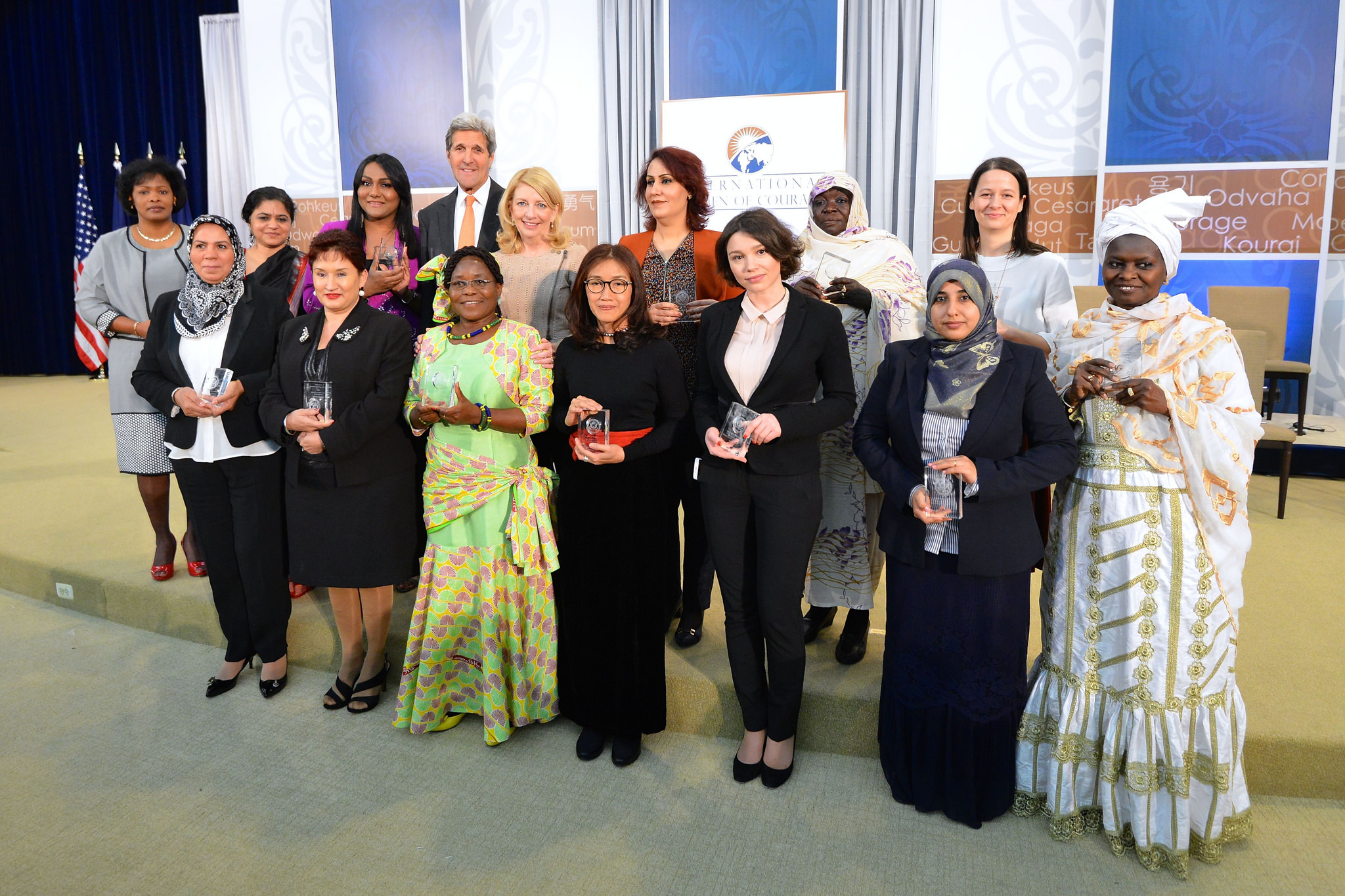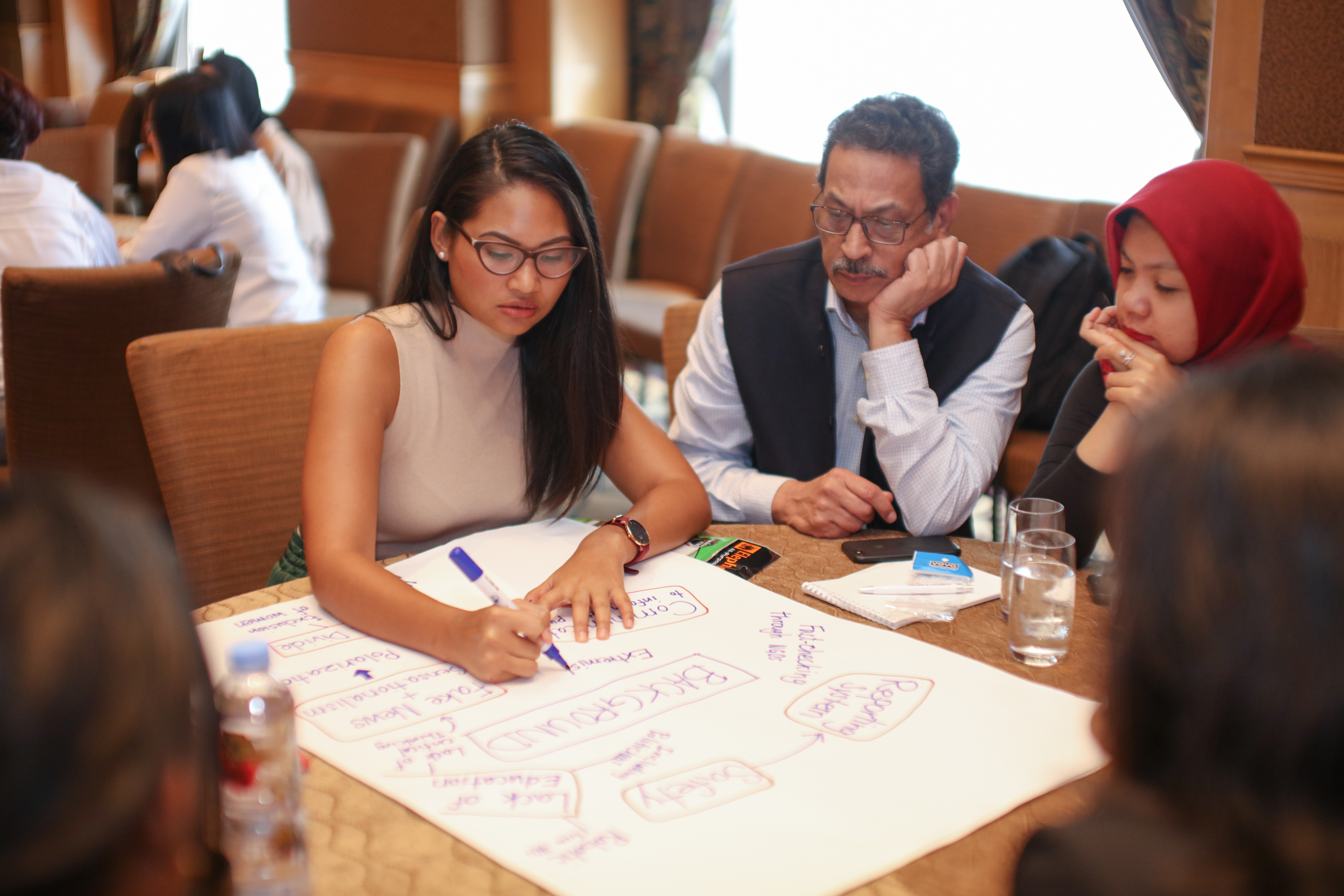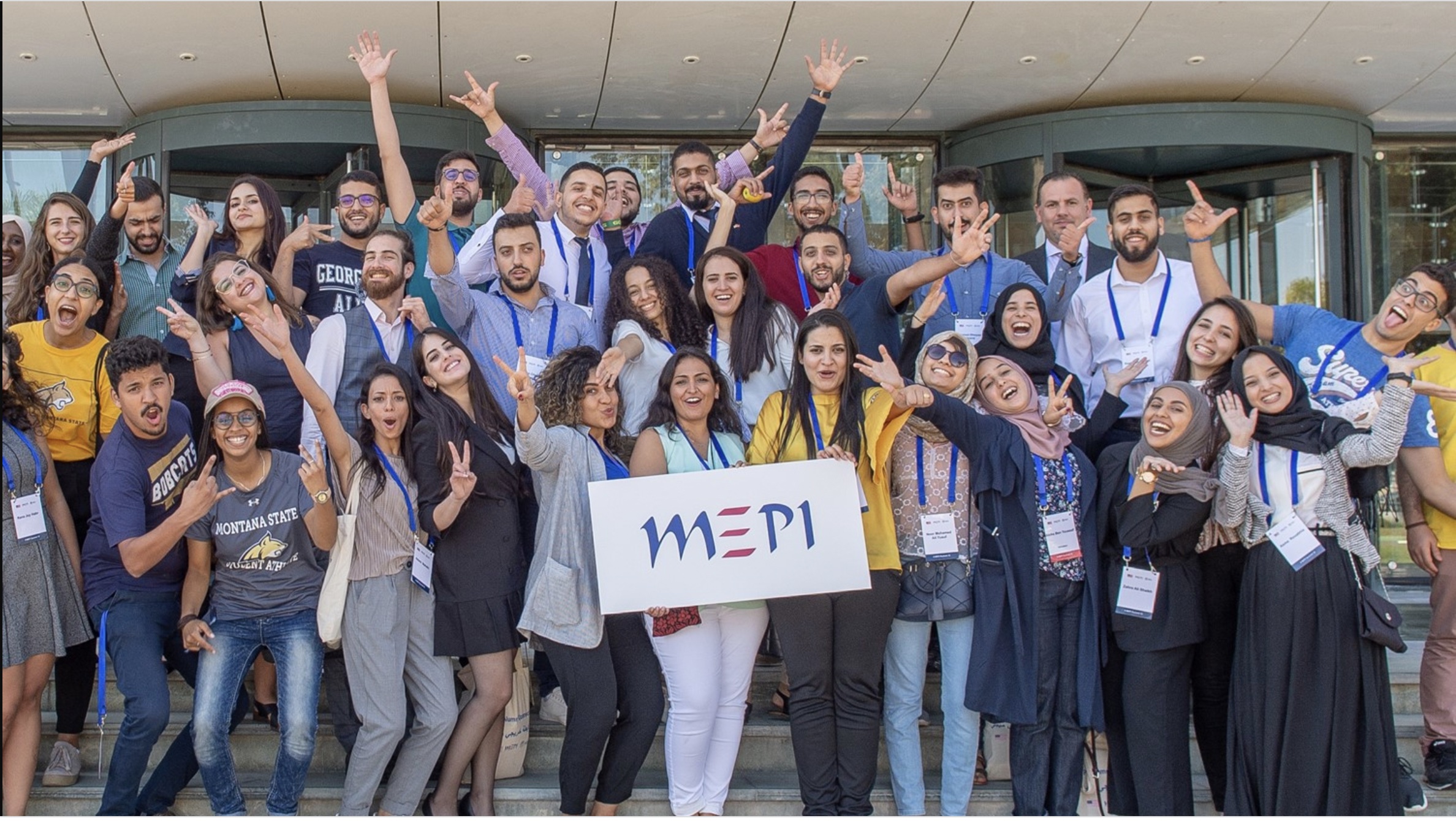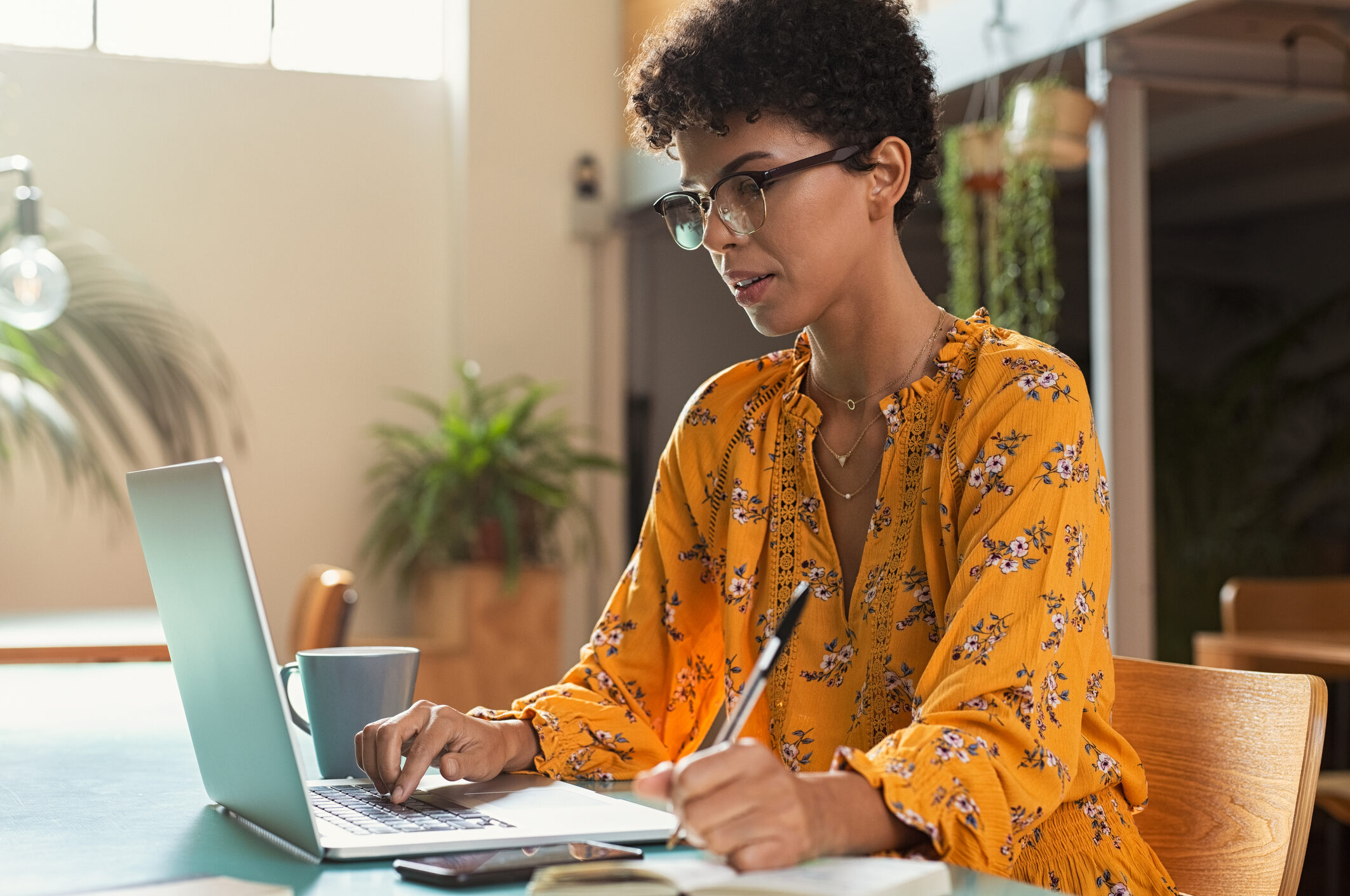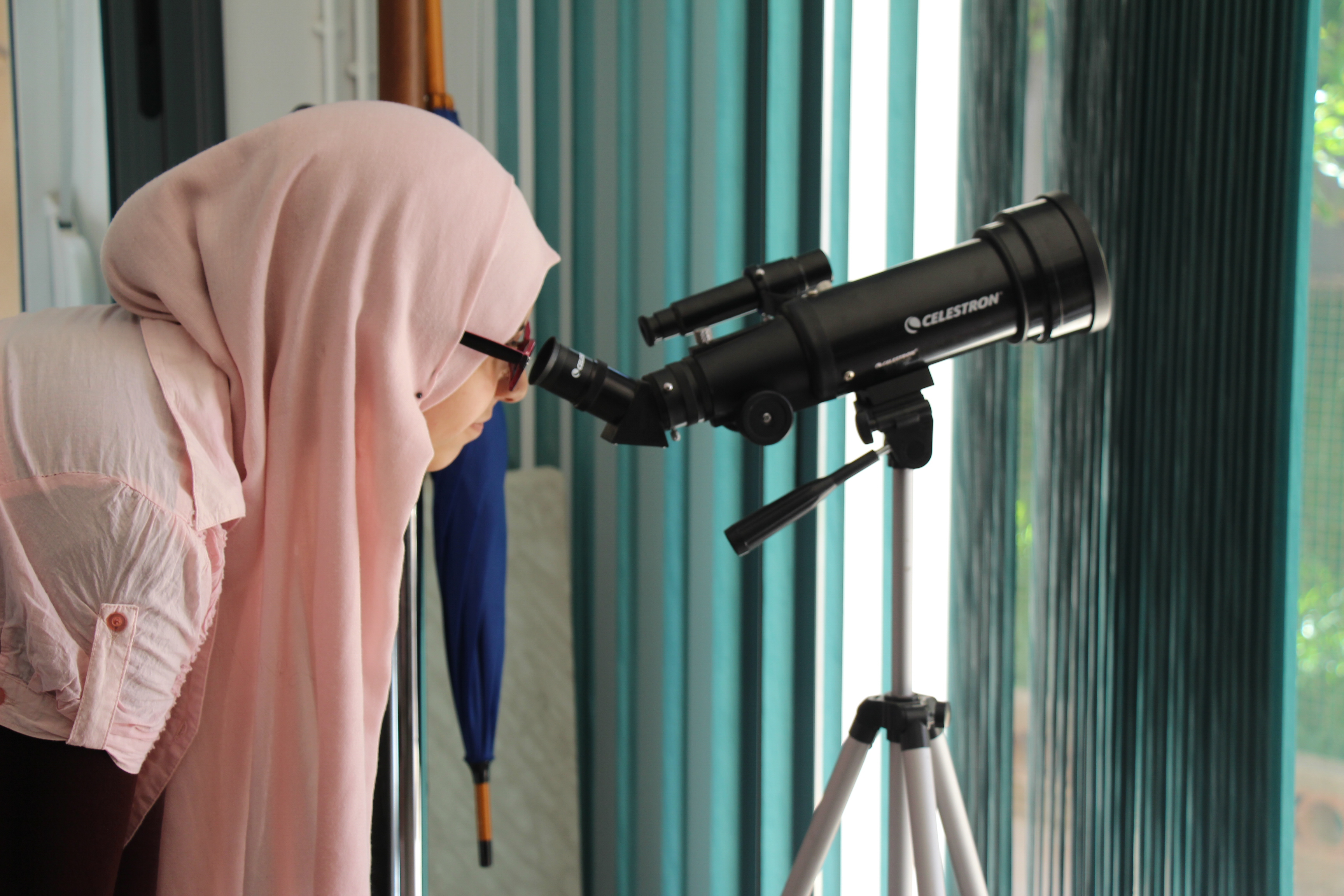-
What We Do
- WHERE WE WORK
-
About Us
 Welcome Message from Carol Jenkins
Welcome Message from Carol JenkinsFor more than 90 years, World Learning has equipped individuals and institutions to address the world’s most pressing problems. We believe that, working together with our partners, we can change this world for the better.
On my travels, I’ve had the opportunity to meet with many of those who have joined us in this mission. In Baghdad, we’ve trained more than 2,300 Iraqi youth who are already giving back at home. In London, our partners in the TAAP Initiative strongly believe that we are all responsible to practice inclusion. And in Vermont, our Experiment in International Living and School for International Training participants prove every day that they have the tools and the determination to change the world.
Please join us in our pursuit of a more peaceful and just world.
- Get Involved
Country: Saudi Arabia
How One Saudi Student Built Friendships and Explored Career Options Through Global UGRAD
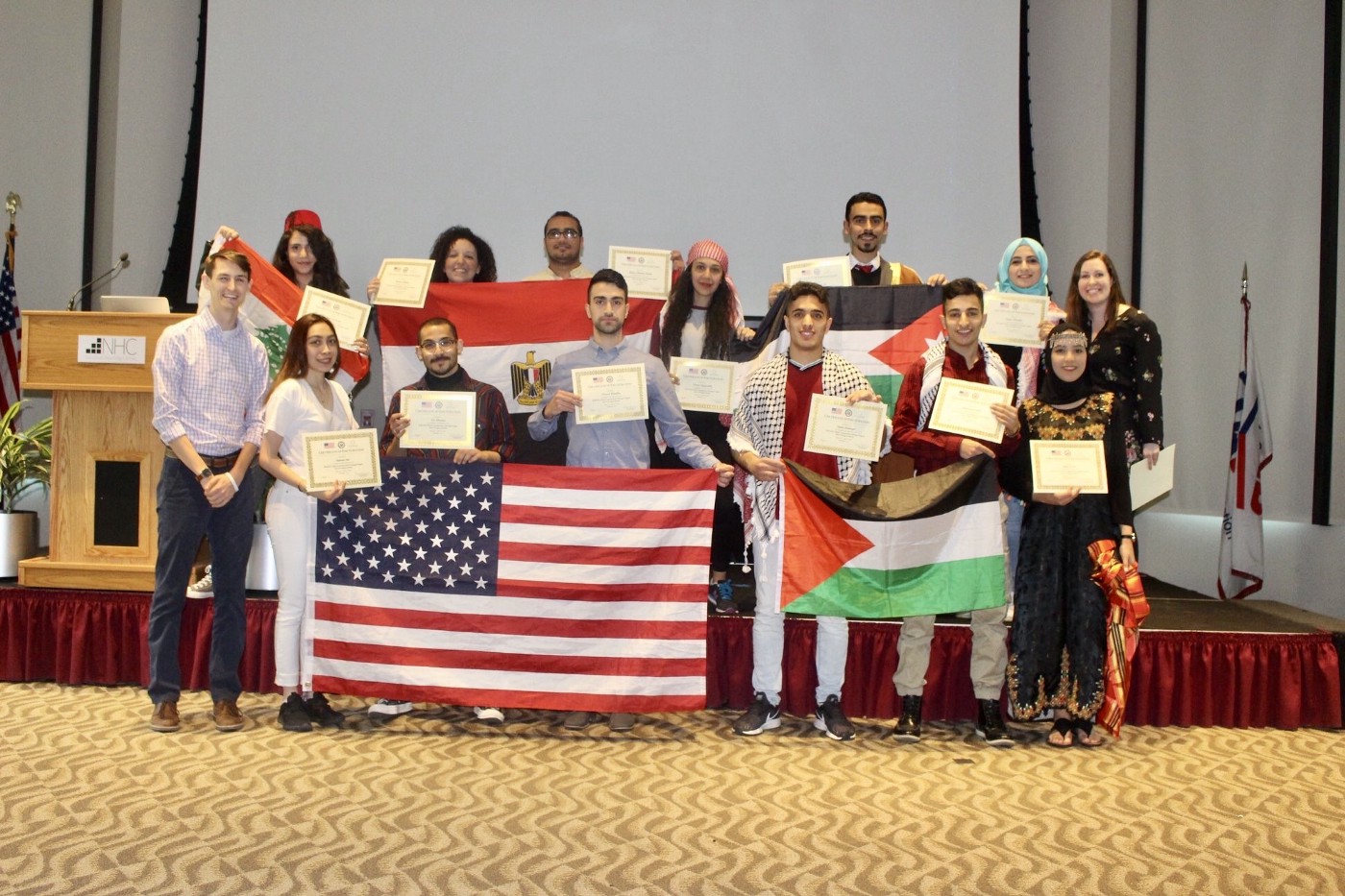
Sawsan Jan had always wanted to study abroad in the United States. While studying architecture at Dar Al-Hekma University in Jeddah, Saudi Arabia, she heard about a program that would allow her to study in the U.S. for a semester and knew she had to take advantage of the opportunity.
“It was very overwhelming to give something a chance,” she says of the application process.
However, taking that chance paid off as Jan was accepted into the Global Undergraduate Exchange Program (Global UGRAD), which brings outstanding students from around the world to the U.S. for one semester of study. Global UGRAD is a program of the Bureau of Educational and Cultural Affairs of the United States Department of State and is implemented by World Learning.
Jan spent the 2019 spring semester abroad at Keene State College in Keene, New Hampshire, where she continued her architecture studies and got involved in student life on campus.
“I don’t remember feeling that it was real until the second week after starting,” she recalls.
Before arriving in the U.S., Jan and the other Global UGRAD participants began the Online Professional and Academic Learning (OPAL) course, which World Learning designed to help prepare them for life at American colleges and universities. Jan says the course helped her be more aware of issues — such as differing social norms and cross-cultural communication — that she would need to deal with while in the U.S.
“It gave me the idea of things to bear in mind and think about when it came to communication, to culture shock, or cultural exchange in general,” she says.
In addition to learning about life in another culture, Jan’s time at Keene State also gave her the opportunity to approach her major from a different perspective. While her program in Saudi Arabia often focuses on the theoretical aspects of architecture, Jan says her courses in the U.S. took more of an applied approach to the subject.
“In studio work at Keene State, it was very practical,” she says. “We actually met the client. We had to follow a specific program.”
Jan also volunteered with Keene State’s chapter of the American Institute of Architecture Students, training other students in how to use different types of architecture software. A unique feature of Global UGRAD is the program’s requirement of its students to complete community service during their time abroad. Jan feels the experience helped deepen her engagement with her fellow students.
“It wasn’t just about leaving one’s comfort zone, but really getting yourself involved in the community and seeing different ways where it can really help,” Jan says.
Now a rising senior exploring her career options for after graduation, Jan credits the Global UGRAD Program with expanding her awareness of the options available to her, including pursuing advanced degrees.
“I’ve always been fascinated by the academic journey of being a scholar or researching or even becoming a professor,” she says. “The experience with UGRAD has definitely made me more conscious of it.”
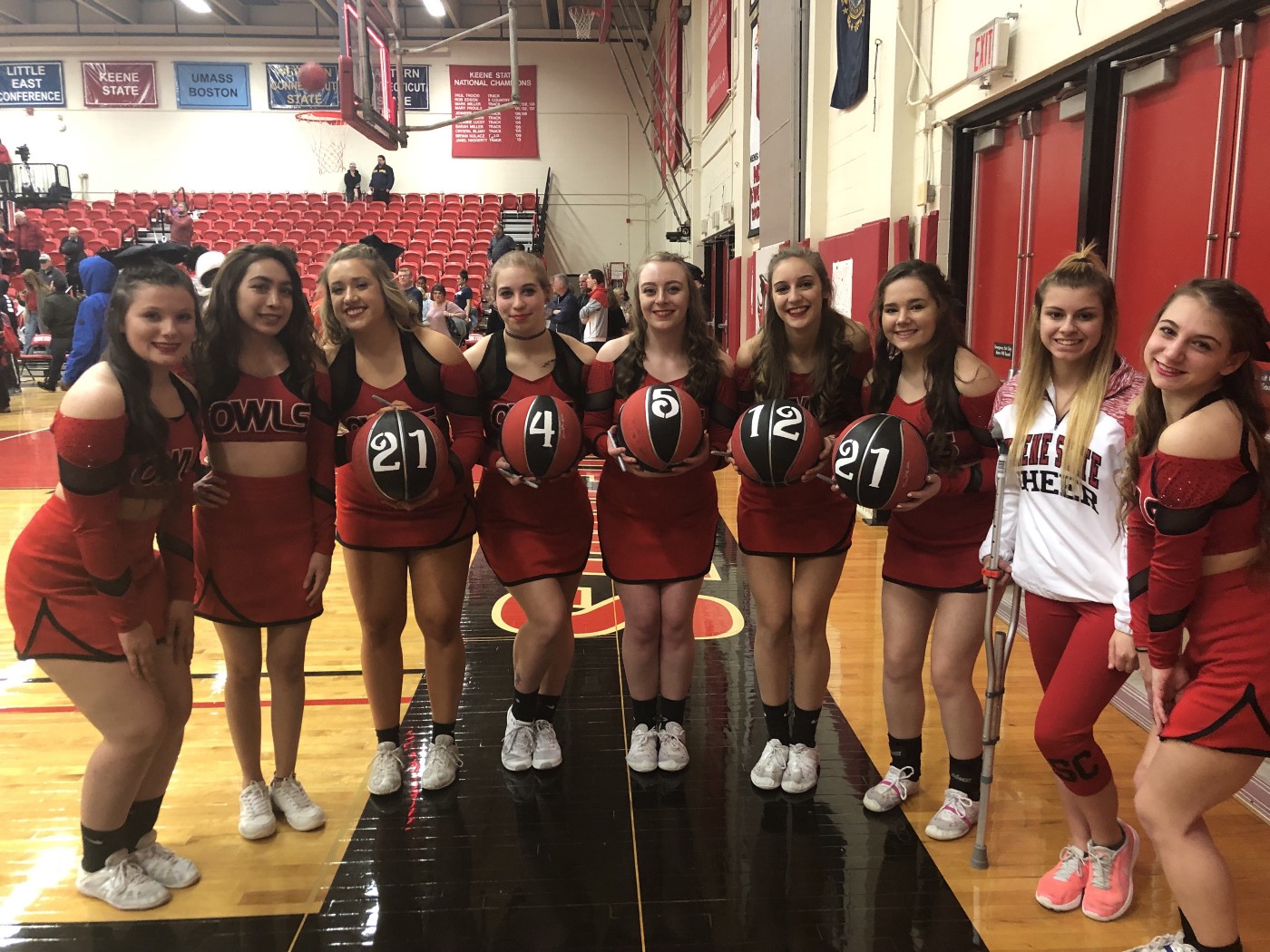
While in the U.S., Jan also took time to pursue another one of her interests by joining the Keene State cheerleading team. A founding member of the first cheerleading team in Saudi Arabia, Jan wanted to connect with others who shared her passion for the sport and explore new ideas she could use with her team at Dar Al-Hekma. She learned about training regimens while practicing with the team and performed as part of the team during some of Keene State’s basketball games.
“It was a very rich experience,” she says. “There’s so many things that I’ve brought back with me.”
Jan says her favorite part of the Global UGRAD program was that it gave her the opportunity to develop meaningful friendships with a variety of new people. She enjoyed finding common ground with people she met, as well as learning about their diverse experiences and backgrounds.
“One of the best things were the connections we have built,” she says. “I’m not just saying getting to know someone, but the emotional connection.”
Jan stays in touch with the friends she made on the program through social media and video chat. She explains that while they may be geographically separated, they still share a strong bond.
“It really feels like I’ve left a great part of my heart with them and I’ve had a great part of their hearts come along with me,” Jan says.
She encourages other students to seek out and apply for programs like Global UGRAD that will give them opportunities to discover more about the world and themselves.
“The more we experience, the more we realize how little we have experienced and how there’s this great room to keep on exploring and knowing more,” Jan says.
Saudi Arabia
Alumni Thematic International Exchange Seminars
Participant Profile
Participants are alumni of U.S. government-sponsored exchange programs and vary in age and level of expertise, but all will be engaged in the seminar topic and highly motivated to create change in their communities.
Please consult the list of U.S. government-sponsored exchange programs below.
- U.S. citizen: https://exchanges.state.gov/us
- Non-U.S. citizen: https://exchanges.state.gov/non-us
Participant Selection
Alumni TIES participants who are not U.S. citizens are nominated by the U.S. Embassies or Consulates in their countries. Please contact the U.S. Embassy or Consulate in your country to learn how you can participate in Alumni TIES. Potential Alumni TIES participants who are living in the United States can apply for specific seminars managed by World Learning. The web link to the online application will be distributed widely by the Office of Alumni Affairs of the Bureau of Educational and Cultural Affairs.
All participants for Alumni TIES seminars are selected by the U.S. Department of State.
Program Design
Alumni TIES seminars take place in six world regions and the U.S.; each seminar is three to four days for small groups of alumni. The seminars include speakers, capacity development trainings, and alumni networking activities. Through the small grants initiative, alumni have the opportunity to take action and make a positive difference in their communities.
Learn More
Watch more videos about the Alumni TIES program.
Read stories from past participants about their experiences at the seminars or with their small grant projects on the Alumni TIES blog.
For information on programs for U.S. government-sponsored exchange program alumni visit the International Exchange Alumni website.
Alumni TIES is sponsored by the U.S. Department of State with funding provided by the U.S. Government and supported in its implementation by World Learning, in partnership with the Office of Alumni Affairs of the Bureau of Educational and Cultural Affairs (ECA).
Communities Connecting Heritage
Communities Connecting HeritageSM Program Impact
____
CCH Alumni Small Grants
At the conclusion of the program’s third year, the CCH team opened the Communities Connecting Heritage Small Grants to organizational and community member alumni from all three CCH cycles. The following projects were selected for CCH Small Grant implementation.
Kristina Llane (Albania)
Title of Project: Beekeeping Tradition as and Educative Tool
This project aims to preserve and share the importance of local beekeeping traditions in the Gjirokastra community of Albania. Kristina will work with elementary school students to cultivate youth interest in beekeeping’s cultural role in their community. Throughout the project, students and teachers will contribute to an educational book on beekeeping to that will equip teachers to continue sharing with future classrooms. The project will conclude with a panel discussion focused on protecting and preserving culture, tradition, and the environment in Albania.
Kalpana Gagdekar (India)
Title of Project: Connecting Community with Their Traditional/Heritage Cuisine
This project will explore and document the Chhara community’s traditional cuisines, which are experiencing a disappearing effect under modern global influences. Kalpana aims to document the rituals and heritage of Chhara cuisine through seven video interviews with Chhara women elders. The project combines modern technology with traditional food heritage and welcomes Chhara members of all ages to reclaim and rediscover their own heritage.
Mandala Theatre (Nepal) and Creative Connections (Connecticut, U.S.)
Title of Project: Hamro Sanskriti: Preserving Cultural Heritage through Participatory Theatre
The goal of this project is to provide youth in Connecticut and Nepal with a deeper connection to their own culture through student-led virtual workshops. The workshops – spearheaded by theater trainers in Nepal and Connecticut – will teach participatory theater techniques to 250 high school students and conclude with a model forum theater piece produced by students for the public.
Athar Lina (Egypt)
Title of Project: Rawya: The Water Women
Rawya: The Water Women is a Cairo-based project aimed at restoring the historically significant Sabil Um Abbas, a 19th century religious building and gathering place, into a usable community space once more. In addition to restoring aspects of the building, the project will connect U.S. and Egyptian women storytellers Donna Bryson and Chirine El Ansary to curate a storytelling experience of powerful 19th century women from their respective countries. Their work will culminate in a video exhibition that will be on display in the newly renovated Sabil Um Abbas for the local community to experience.
Bhasha Research and Publication Centre (India) and University of Northern Colorado (Colorado, U.S.)
Title of Project: Reclaiming Heritage II: Building Social Bonds and Bridges with Cultural Heritage
This project will utilize digital library resources at UNC to create and share cultural heritage “snapshots” with the broader community. These short videos will help immigrants and refugees in Colorado and indigenous peoples in India share their cultural heritage while building bonds with their local communities. The project will provide its participants with the ownership and platform to share their own heritage while paving a pathway for integration with others in their community.
Outside the Lens (California, U.S.)
Title of Project: Youth Tellers
Youth Tellers is a cross-cultural collaboration between Latinx youth in California and Bosnia-Herzegovina, relying on the concepts of past, present, and future to explore students’ complex cultural identities. Using digital media tools including photography, videography, and youth-facing communication forums like Discord, the project will culminate in a virtual exhibition showcasing the participants’ cultural heritage exchange with one another.
Explore the Story section on the right to learn more about the unique cultural heritage projects implemented since 2018.
Fulbright Specialist Program
What?
Link U.S. Experts and International Institutions
A program of the U.S. Department of State, Bureau of Educational and Cultural Affairs, the Fulbright Specialist Program is a unique opportunity for U.S. academics and established professionals to engage in two- to six-week consultancies at host institutions across the globe. Host institutions, including universities, non-profits, and other organizations, develop and submit projects for approval by the U.S. Embassy or Fulbright Commission in their country in wide-ranging academic and professional fields that build capacity and promote long-lasting linkages between individuals and institutions in the U.S. and abroad.
Why?
Address Priorities and Build Institutional Capacity at Institutions Around the World
An important companion to the traditional Fulbright Scholar Program, the Fulbright Specialist Program differs by providing short-term exchange experiences that tackle discrete, sometimes rapid response, projects. The Fulbright Specialist Program encourages participation of both university faculty and highly experienced non-academics, including legal experts, business professionals, public health practitioners, scientists, IT professionals, artists, and journalists. The program is a mutually beneficial opportunity for the Specialist who may not be available to leave their position for an extended period of time and the host institution which needs an experienced partner to jointly tackle a problem or examine an issue on a short-term basis.
How?
Become a Fulbright Specialist: Apply to Join the Roster
Fulbright Specialists are a diverse group of highly experienced, well-established faculty members and professionals who represent a wide variety of academic disciplines and professions. In order to be eligible to serve as a Fulbright Specialist, candidates must have significant experience in their respective professional field and be a U.S. citizen at time of application. Eligible disciplines and professional fields supported by the Fulbright Specialist Program are listed below.
- Agriculture
- American Studies
- Anthropology
- Archeology
- Biology Education
- Business Administration
- Chemistry Education
- Communications and Journalism
- Computer Science and Information Technology
- Economics
- Education
- Engineering Education
- Environmental Science
- Law
- Library Science
- Math Education
- Peace and Conflict Resolution Studies
- Physics Education
- Political Science
- Public Administration
- Public/Global Health
- Social Work
- Sociology
- Urban Planning
Interested candidates can find more information about the Fulbright Specialist Program and apply to serve as a Specialist at fulbrightspecialist.worldlearning.org. Candidates who meet all eligibility requirements will have their full applications reviewed by a panel of their professional peers. Candidates who are approved by the peer review panels will then join the Fulbright Specialist Roster. Individuals remain on the Specialist Roster for a three-year term and are eligible to be matched with a host institution’s project abroad during that tenure.
The following costs are covered for those Fulbright Specialists who are matched to a project: international and domestic airfare, ground transportation, visa fees, lodging, meals, and incidentals. A daily honorarium is also provided.
Become a Host: Bring a Fulbright Specialist to Your Institution
The Fulbright Specialist Program allows universities, cultural centers, non-governmental organizations, and other institutions abroad to host a leading U.S. academic or professional to work on diverse, short-term collaborative projects where the Specialist conducts activities which may include, but are not limited to:
- Delivering a seminar or workshop
- Consulting on faculty or workforce development
- Developing academic or training curricula and materials
- Lecturing at the graduate or undergraduate level
- Conducting needs assessments or evaluations for a program or institution
Institutions interested in hosting a Fulbright Specialist should contact their local Fulbright Commission or U.S. Embassy for country-specific requirements and deadlines.
Contact information for all participating countries is available on the fulbrightspecialist.worldlearning.org website.
For more information or questions about the Fulbright Specialist Program, please email [email protected].
The Fulbright Specialist Program is a program of the U.S. Department of State with funding provided by the U.S. government and administered by World Learning.
Global Undergraduate Exchange Program
For highlights from the Global UGRAD Program, visit our newsletter, the Global Gazette.
EducationUSA Academy
For further information: [email protected]
“Through EducationUSA Academy, I made new friends from all over the world, I learned about the American education system and requirements for getting accepted to an American university, and I visited one of the most interesting places in the United States in a friendly and helpful group.” -2017 EducationUSA Academy participant
Student Eligibility
Participants must:
- Be students (currently enrolled or recently graduated), ages 15-18 at the time of the summer program;
- Have at least three years of middle to high school English language study (language requirements may vary slightly by institution);
- Be mature and self-disciplined, with a commitment to active participation in the Academy and its programming;
- Aspire to pursue a portion of their higher education in the U.S.; and
- Have sufficient personal funds to cover program fees and international airfare.
More information is available from your local EducationUSA adviser. To find your local EducationUSA advising center, please visit the EducationUSA website.
Follow the program on Facebook, Twitter, and Instagram.
EducationUSA Academy is sponsored by the U.S. Department of State with funding provided by the U.S. Government and administered by World Learning.
Global UGRAD
International Sports Programming Initiative
Application Process
Participants come from a variety of sports backgrounds, based on local priorities and opportunities to create sustainability, in each specific country.
Participants are recruited by World Learning, with support from the U.S. Embassies abroad.
For more information on sports diplomacy programs, visit https://eca.state.gov/programs-initiatives/initiatives/sports-diplomacy.
The International Sports Programming Initiative is sponsored by the U.S. Department of State with funding provided by the U.S. Government and administered by World Learning.
International Visitor Leadership Program
End of Year Report
Chosen by U.S. embassies worldwide to participate, distinguished professionals include:
- parliamentarians
- government officials
- entrepreneurs
- NGO leaders
- journalists
- academics
- arts administrators
- mid-career professionals
Programs focus on policy issues in areas such as:
- government
- international security
- foreign policy
- entrepreneurship
- economics and trade
- media
- women’s leadership
- education
- public health
- arts
- agriculture
- disability rights and inclusion
World Learning staff members design national itineraries, arrange logistics, set up meetings in Washington, DC, and coordinate the collaboration of U.S. Department of State program officers, interpreters and International Visitor Liaisons, and more than 85 community-based member organizations from the Global Ties U.S. Network who arrange local programs nationwide.
Participants
Most participants are mid-career professionals and emerging leaders, and for many, this is their first visit to the U.S. Groups are of varying sizes, from single visitors to groups of 25 or more. World Learning program staff work closely with their State Department counterparts to design a program customized to the project objectives and the visitors’ interests.
Participant Selection
IVLP candidates are selected solely by U.S. embassy personnel in each country. There is no application form. World Learning is a private sector partner of the U.S. Department of State; our role is limited to designing programs for participants once they arrive in the U.S. For further information regarding the program, please consult the U.S. Department of State’s website.
Program Design
A typical project includes up to a week of meetings in Washington, DC, to provide an orientation and overview of the theme and to introduce visitors to federal officials and agencies, national organizations, academics and think tanks, nonprofits and NGOs, and professionals in their specific field of interest. All projects include a briefing on the US federal system of government. Meetings may include panel discussions, site visits, workshops, individual interlocutors, job shadowing, or service opportunities. Visitors typically travel to an additional three or four cities in geographically diverse regions of the country; the itinerary may include a state capital and a small town to provide first-hand exposure to the great diversity that exists in the U.S. Also included in the program design are hospitality dinners, school visits, community service activities, and cultural events such as rodeos, state fairs, festivals, visits to national parks, or events that highlight some unique aspect of the region visited.
Participant Experience
“My recent experience in the IVLP program is so far the deepest ever for me to see and understand the full picture of what America as a country is like. I strongly believe this program will have a very long-term impact on my views about America and the world and to some extent it has already helped me to understand many long-time questions.” – Journalist from China
The International Visitor Leadership Program is sponsored by the U.S. Department of State with funding provided by the U.S. Government and administered by World Learning.
Leaders Lead On-Demand Program
Examples of past leaders Lead On-Demand Projects:
- Vietnam Legal Aid
- Refugee Integration and Resettlement in Central and Eastern Europe
- Sports Leadership Program for Colombia
- Mongolia Disability Rights Legislation and Implementation
- Promoting Open Educational Resources: Middle East and North Africa
- Tourism and Development in Serbia and Kosovo
- Religious Freedom and Interfaith Dialogue for Myanmar, India, Indonesia, Malaysia, Sri Lanka, and Thailand
- Emerging Leaders Exchange for Northern Ireland and the Republic of Ireland
- Environmental Advocacy for Mongolia
- Getting Connected Program for the South Pacific
- Civic Engagement Program for Moldova
- Disinformation and Fact Checking in Kenya
The Leaders Lead On-Demand is sponsored by the U.S. Department of State with funding provided by the U.S. Government and administered by World Learning.
MEPI Alumni Connection
Funding Opportunities
Deadline: March 8 at 6 PM GMT
Connect with MEPI Alumni Connection on Facebook.




